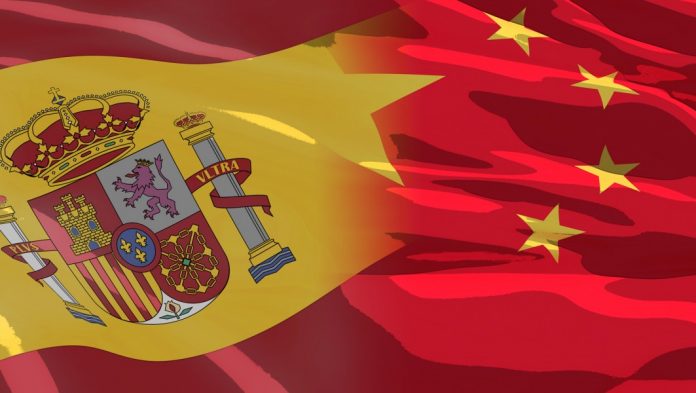FAISALABAD: The Ambassador of Spain to Pakistan, Carlos Morales has said that bilateral trade between Pakistan and Spain is hovering around one billion dollars and we must take concrete steps to exploit its untapped potential by encouraging frequent exchanges of trade delegations and by organising single country exhibitions in both countries.
The Spanish envoy was speaking during a meeting with the Vice President Faisalabad Chamber of Commerce and Industry (FCCI) Usman Rauf, Chairman diplomatic Affairs and Foreign Trade Delegation Committee Sohail Bin Rasheed and Executive Member Jawad Asghar here on Friday.
Carlos Morales said that Pakistani exports had recorded a phenomenal increase of 44 per cent immediately after the grant of GSP plus status to Pakistan by the European Union (EU) in 2014. “Similarly, in the next year a 24 per cent increase was documented which reduced to 5 per cent during the year after that”, he said and added that during last year, a 12 per cent increase was witnessed.
He said that mainly Pakistani exports are restricted to textile and hence Pakistan should diversify its export base to further increase its exports particularly in the IT (Information Technology) and food sector.
The Spanish Envoy said that European countries including Spain have developed their Agriculture sector which has now been declared as an industry.
He said that Pakistan produces a large number of agricultural products but it lacks processing and value-addition systems. He said that Pakistan has the potential to develop its agricultural and livestock sector to give a quantum jump to its exports.
“However, for this purpose, efficient food processing is imperative”, he added.
Carlos Morales said that he will visit Faisalabad in the middle of July to personally review the investment opportunities in this city. He also welcomed a proposal of FCCI to send a trade delegation to Spain and assured to fully facilitate them in addition to arranging their meeting with their Spanish counterparts.
The FCCI VP Usman Rauf said that Faisalabad is the third largest city in Pakistan along with being second in revenue generation. He said that it has 6,000 members within its fold and most of them belong to the textile sector, but other sectors are also contributing their due share in the overall economic growth of Pakistan.
Sohail Bin Rasheed requested the Spanish ambassador to help Pakistan in technology transfer and in launching a joint venture in the agriculture sector. He said that Pakistan is a major producer of milk, meat, vegetables and fruits which could be used to produce a chain of other high-value food products.
He said that the fourth round of bilateral consultative meeting between Pakistan and Spain was held in February this year. Secretary of Foreign Affairs Tehmina Janjua participated in the meeting while the Spanish Secretary of State also represented his country.
Sohail Bin Rasheed welcomed the decisions of this meeting and hoped that these would have positive, futuristic and productive impacts on both the economies.
He also invited the Spanish ambassador to visit Faisalabad and said that the M3 Industrial Estate has lots of potential for foreign investors and Spanish investors should also avail from these opportunities.
He said that the World Bank has declared Faisalabad as the best city regarding “ease of doing businesses” and hence it is the most lucrative destination for foreign investors.
Sohail Bin Rasheed also welcomed the appointment of Commercial Attaché in the Spanish Embassy and hoped that he will play a major role in enhancing bilateral trade between the two countries.
He further said that FCCI is planning to send a trade delegation to Spain by the end of July or September and requested the Spanish Ambassador to facilitate them by arranging their meetings with potential Spanish investors.




